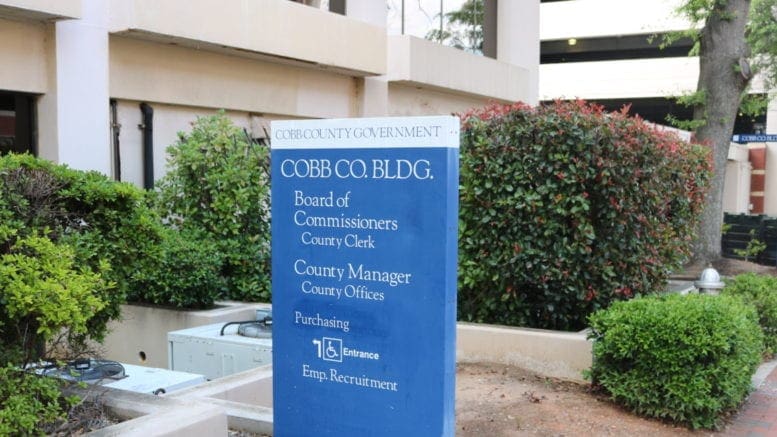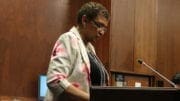In contrast to the packed, contentious 2018 millage rate and budget hearings, which was the last time an increase in the dollar amount of the millage rate was proposed and passed, the Cobb County Board of Commissioners passed the fiscal year 2021 millage rate Tuesday with little fanfare and little vocal opposition at the three state-mandated public hearings.
The hearings drew few people from the public to speak this year, two at the first of three meetings, two at the second, and none at the third and final meeting.
The millage rate, which remains the same as the previous year, passed 4-1 with District 1 Commissioner Keli Gambrill opposed.
The fewer than 5 people who spoke in opposition to the millage rate cited economic uncertainty due to COVID-19 as their reason for opposition to maintaining the current millage rate, favoring instead a cut in the rate to the “rollback rate” (the rate necessary to maintain the current amount of the property tax digest).
“To me, it shows that this board listens to the community and what residents believe the needs are in Cobb County, and they adjust the millage rate accordingly,” said Chairman Mike Boyce in a news release about the hearings and vote.
The news release from the county stated that the following adjustments were made in this year’s budget:
- Assumes no growth in the tax digest for the coming year
- Significantly reduces capital expenditures
- Includes no pay raises for county employees
- Provides for no new positions and includes a hiring freeze
The state-mandated public hearings
Under Georgia law, counties are required to calculate a “rollback” millage rate after property reassessments are done and the total digest of taxable property for the year is prepared.
“Millage” is the amount per $1,000 of the taxable value of a property used to calculate how much the property owner owes in taxes.
The “rollback” millage rate is the hypothetical rate at which the taxation under the newly prepared tax digest would produce the same total tax revenue as the previous year.
If the county proposes a millage rate higher than the rollback rate, three public hearings are required so the public can give its opinion on the tax increase.





